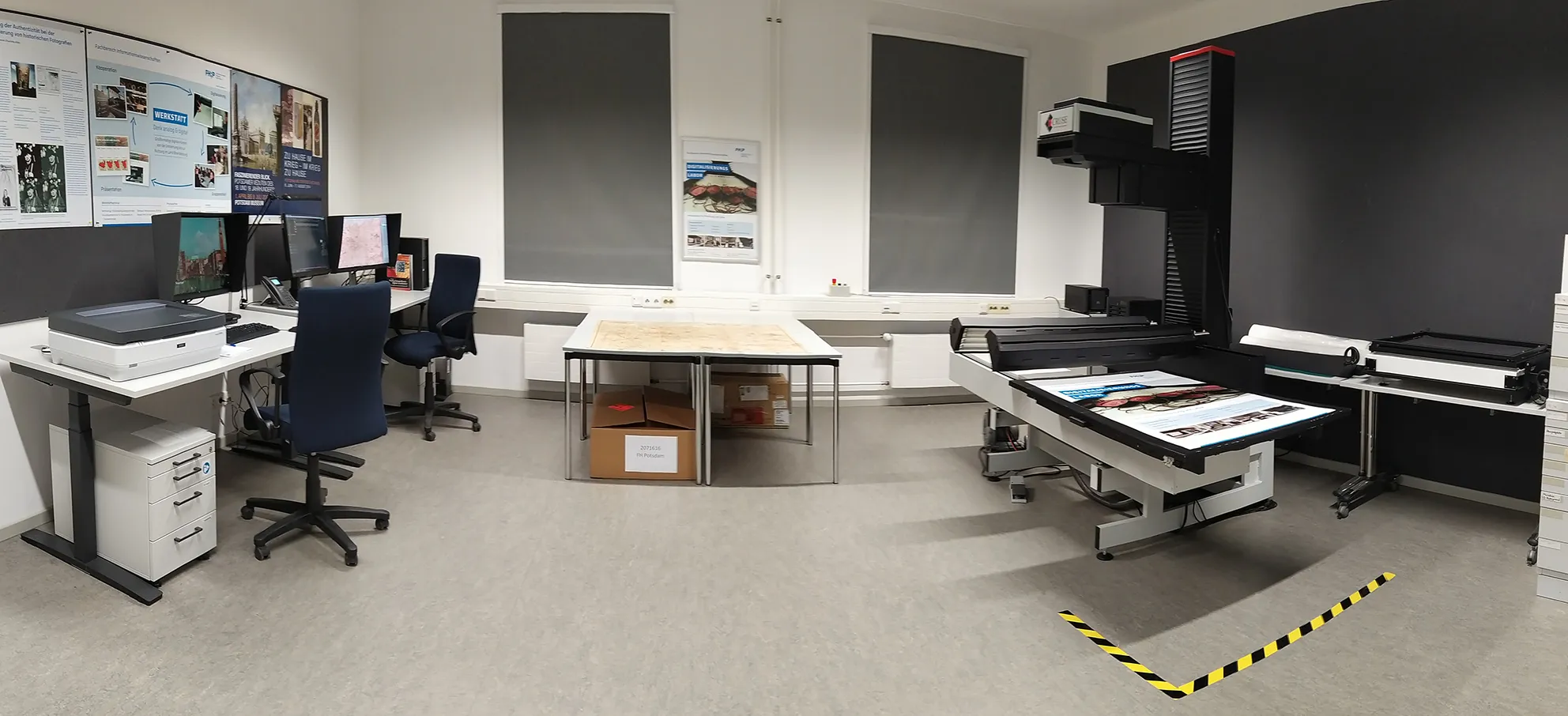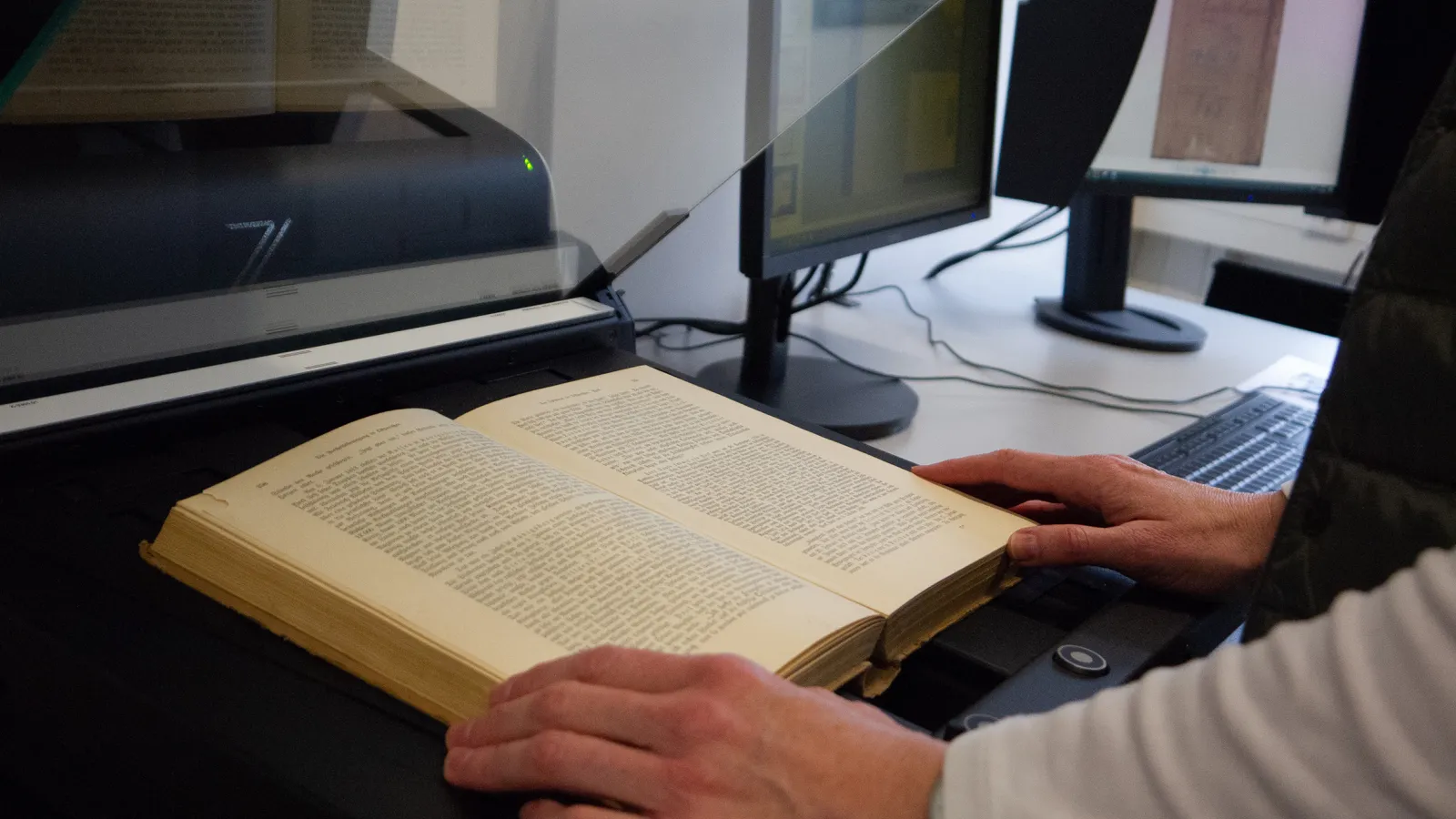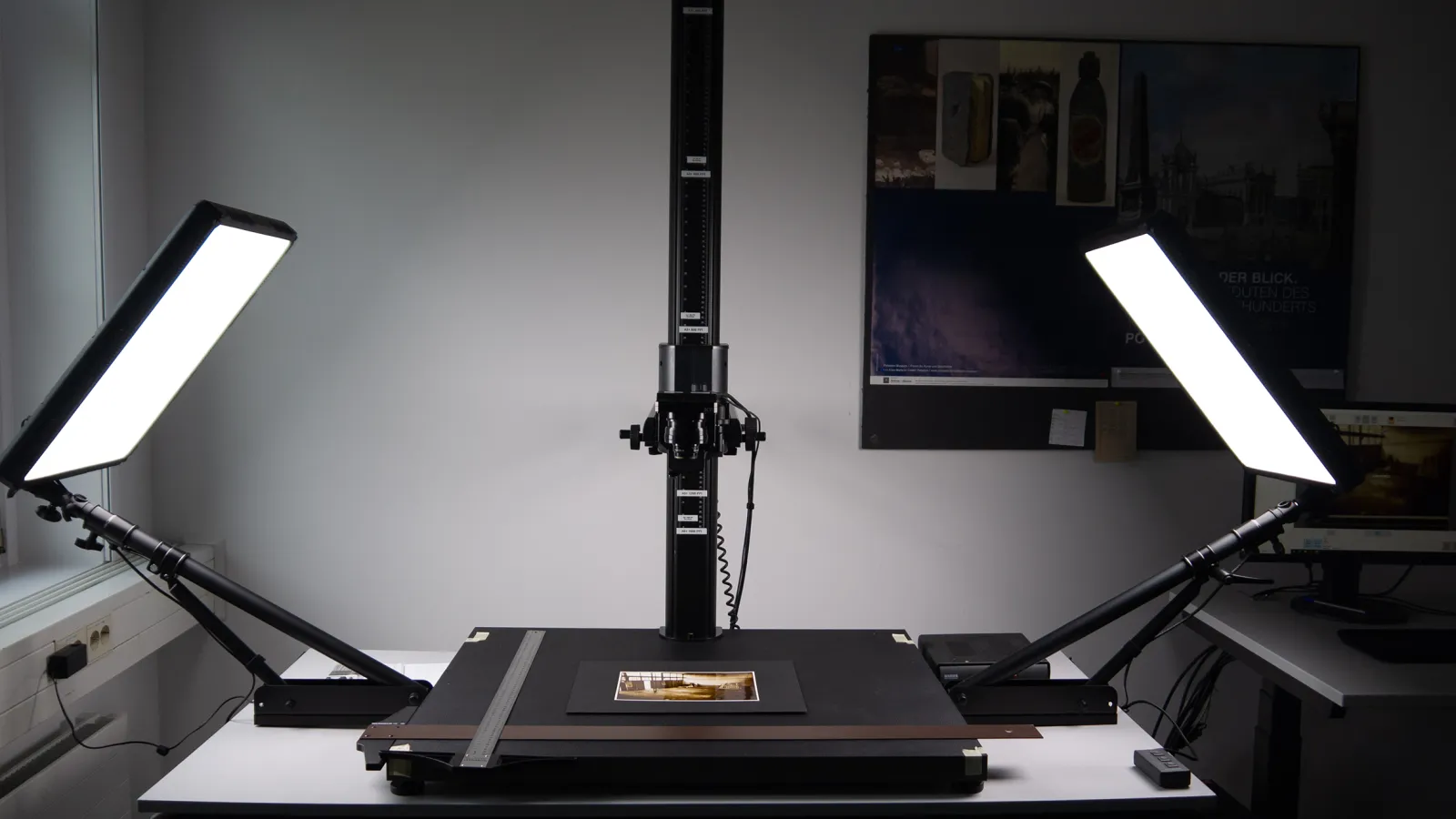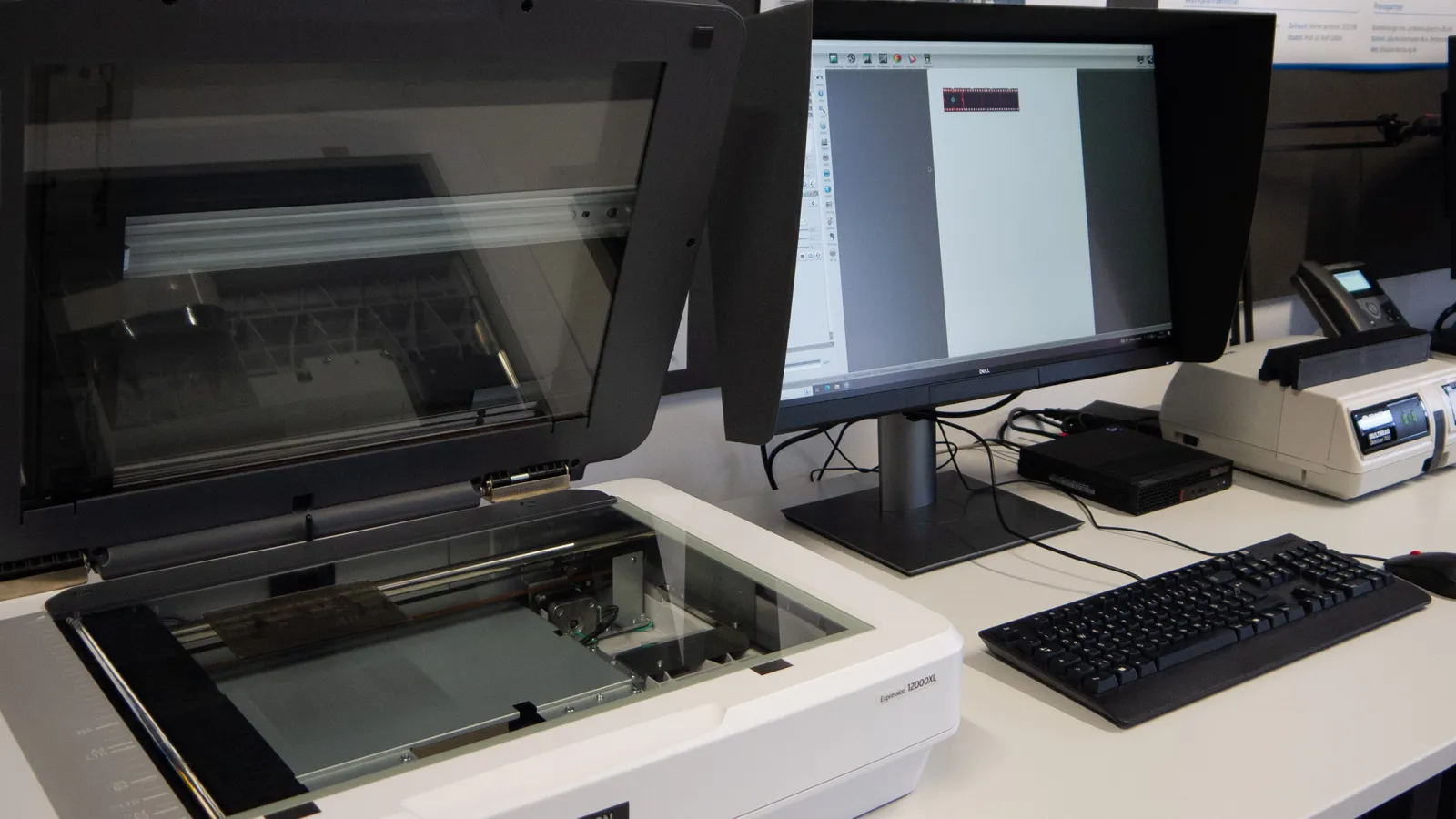Digitisation Lab – Laboratory for Retrospective Digitisation and Digital Archiving

The digitisation lab of the information sciences department offers students, teachers and staff the necessary infrastructure to build up practical skills in the fields of retrospective digitisation and digital archiving.
Possible uses at a glance
The use of digital information channels has become a matter of course. However, the high-quality provision of digital information and digital objects as well as their sustainable availability are still far from being a matter of course. This complex subject area is a focus of teaching and research at the Department of Information Sciences. The digitisation lab provides an infrastructure for the practical aspects.
The digitisation lab is located in rooms 216 and 217.
Infrastructure
The infrastructure allows the testing of all workflow components of retrospective digitisation, with a focus on imaging digitisation processes. These components are:
- Electronic inventory
- (object-preserving) retrospective object digitisation
- Digital presentation
- Digital preservation
- Digital long-term archiving
In addition, there are possibilities for temporary storage of the originals in A0 plan cabinets and sheet steel cabinets.
Linking research and teaching
For many years, the digitisation lab has stood for the practice-oriented linking of research and teaching in the above-mentioned areas. Through the use of the digitisation lab, future information scientists should have the opportunity to analyse and understand the digital retrospective transformation of analogue information. Derived from this, the students are able to learn existing practical professional methods, to experience project-related thinking, organisation and action in practice. They can later integrate the knowledge gained from this into their work environment. Depending on the area, this applies equally to the bachelor's degree programmes as well as to the master's degree programme in Information Sciences.
Cooperations
In cooperation with information science institutions such as archives, libraries, museums and related scientific and economic fields, the training of information specialists is to be supported and adapted to the dynamically changing needs of the labour market. The digitisation lab offers an ideal research infrastructure for these institutions. Since 2011, several successful research projects have been based on the link with the Digitisation Lab.
Areas of application
The digitisation lab is an infrastructure to support the requirements of teaching and research at the information sciences department. In the rooms of the laboratory, the available technical equipment offers the possibility to practically experience the areas of electronic collection acquisition, digitisation, digital storage and digital long-term preservation. In addition, there are aspects of object-friendly handling of the most diverse originals and interim storage.
Technical equipment
The retrospective digitisation of analogue objects, here with a focus on imaging digitisation processes, is based on two technical methods. The first method uses so-called line scanners. Representatives of this category are, for example, many book scanners, document and feed scanners, flatbed scanners, etc. The second method is the use of area chip-based camera systems. Many modern scanners in all format ranges are based on this technology.
Both camera systems are used in the digitisation laboratory.
The following systems are available:
- Cruse CS 155ST - large format scanner with vacuum table up to DIN A0 with several exposure modes for the reproduction of surface structures; incl. transparency unit up to DIN A2, optical resolution depending on format 300-600ppi, colour depth max. 48Bit.
- Zeutschel OS12000C - book scanner up to DIN A2, max. optical resolution 300ppi, colour depth 24Bit
- Epson Expression 11000 XL Pro - flatbed scanner up to DIN A3; incl. transparency unit, max. optical resolution 1600ppi, colour depth max. 48Bit
- Braun MultiMag SlideScan 7000 slide scanner, max. optical resolution 5000ppi, max. colour depth 48Bit
- Microbox - repro system with 71 MP CMOS camera up to DIN A1+ with turntable for 3D images, optical resolution depending on format 300-1600ppi colour depth 48Bit
- Zeutschel OS 15000 Advanced Plus - book scanner up to DIN A3+, max. optical resolution 400ppi, colour depth 24Bit
- Epson Expression 12000 + 11000 XL Pro - flatbed scanner up to DIN A3; incl. transparency unit, max. optical resolution 1400ppi, colour depth max. 48Bit
- Braun MultiMag SlideScan 7000 slide scanner, max. optical resolution 5000ppi, max. colour depth 48Bit






